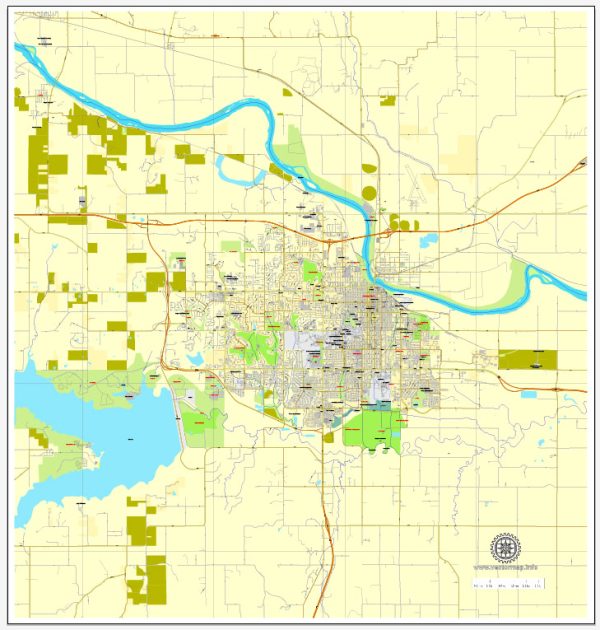Lawrence, Kansas, is a city with a rich and storied history, particularly in the context of United States history. Here is a brief description of some key historical events and developments associated with Lawrence, Kansas:
- Bleeding Kansas: Lawrence played a pivotal role in the “Bleeding Kansas” period during the 1850s. This was a time of violent conflict between pro-slavery and anti-slavery forces, as Kansas was deciding whether it would enter the Union as a slave state or a free state. Lawrence was a stronghold of anti-slavery sentiment and was repeatedly attacked by pro-slavery forces, culminating in the infamous Lawrence Massacre of 1856.
- Founding and Abolitionist Roots: Lawrence was founded in 1854 by settlers who were staunchly anti-slavery and who believed in the principles of the Free-State movement. Many of its early residents were dedicated abolitionists who sought to establish a community where slavery was not allowed.
- Role in the Civil War: During the American Civil War, Lawrence was a center for recruitment and support for Union forces. Quantrill’s Raid in 1863, led by Confederate guerrilla William Quantrill, resulted in the destruction of much of the city and the loss of many lives.
- Educational Hub: Lawrence is home to the University of Kansas, founded in 1865, which has been an important institution for education and research in the region.
- Cultural and Social Movements: Lawrence has a history of fostering cultural and social movements. In the 20th century, it was a center for political activism and counterculture, including being a focal point for anti-Vietnam War protests and the civil rights movement.
- Historic Landmarks: The city has several historic landmarks and sites, including the Old West-themed Massachusetts Street, the Robert J. Dole Institute of Politics, and the Watkins Museum of History.
- Modern-Day Lawrence: Today, Lawrence is a thriving city with a diverse population, a vibrant arts and music scene, and a strong sense of community. It continues to embrace its history and its role in promoting social justice and equality.
Lawrence’s history is closely intertwined with the broader historical narrative of the United States, particularly with regard to the struggle over slavery and the fight for civil rights. It stands as a symbol of resilience and the enduring spirit of those who sought to make it a bastion of freedom and progress.



 Author: Kirill Shrayber, Ph.D. FRGS
Author: Kirill Shrayber, Ph.D. FRGS